IVRS (Interactive Voice Response Syste) based Daily Monitoring System (DMS) of the Mid-Day Meal Scheme
Description
The IVRS based DMS envisages an automated MIS where data of children availing mid day meal would be available on daily basis. In view of the developments in the field of internet based technologies and onrush of mobile telephony in the rural area, the system is conceived on the basis of an interface between computer and mobile phone. The major challenges in getting real time data from almost 1.5 lac schools of the State were mainly two: getting data through ‘pull’ method and second, facilitating teachers for giving data without spending a single penny so that reimbursement/accounting/auditing exercise is not required. The system which came handy, in view of above, was IVRS based one. It gives school-wise information access on real time basis through an out bound dialing solution wherein calls are placed to all the teachers from a virtual number using PRI lines. The system generated compilation of the data of number of children who availed MDM would be keyed-in by the teachers and will be displayed on web the same day. Moreover, transmission of real time data would not leave scope for data manipulation/distortion and availability of exception reports would improve efficacy and transparency of the system.
What we deliver
1. Collect the information on the number of children to whom mid day meal has not been served, 2. Make available this information to various levels of officials for analysis,3. Alerts to the officials at various levels for making necessary interventions, 4. Various analytics available on the portal for providing a kind of DSS for the decision making level. 5. 24×7 access to the analytics to the district officials for information and remedial action, 6. Communication can be done to any school and Headmaster of the school.
Whom we deliver
Government of India, Government of U.P., Mid Day Meal Authority, U.P. at Lucknow, all the Divisional Commissioners for monitoring the scheme within their divisions, all the District Magistrates who are the nodal Officers of the Scheme at the district level, all the Divisional and District level officers and MDM cell of the Education Department who are responsible for implementing and monitoring the Scheme for whom the key information being provided by the System on real-time basis is the number of children who availed meals on a particular day.
Why is the project unique?
The system is unique in the sense that it does not have to depend on the respondents to initiate the provision of data from their end. Again, ensuring that the teachers do not spend a single penny to deliver the data was another major challenge that has successfully been met. Above all, the acceptance and user-friendliness was crucial in the search for a system that fit in terms of requirement, design and viable technology. It also called for caution as it was one-of-a kind, and also the first of its kind with no previous models to bank on. Overall, the end result is a success story that is worthy of emulation by various other sectors. Most importantly, it has brought in a system of accountability and transparency, primarily because data is available almost immediately. Upon stabilisation of this system, this data could serve various other purposes, or new components could be added to the existing process. Nevertheless, its impact has been that compliance with the scheme has improved to a great extent, which is the ultimate objective of the monitoring system.
Roadmap
“Kar Lo Duniya Mutthi Me”…… it so truly reflects the spirit of the onrush of mobile technology in the society at large. This epithet represents what goes inside the minds of all the mobile users, mobile service providers, commercial organizations, government and the governed and the masses at large when the idea of mobile telephony and its vast potential comes to the fore. Good governance signifies functioning of the government organization in a fashion that the outcome of the functions performed are for the good of the people at large and which also projects a sense of participation by the people in the process of its functioning. In short, if a government ‘of’ the people is made to function ‘by’ the people and ‘for’ the people as such, the entire process of governance in such a scenario would be good governance. ICT, on account of its vast potential in terms of pace and transparency of information, can be used to make people- both governing the people and the people being governed- aware of different dimensions of implementation of schemes and programmes that were hitherto not traversed by them to the extent to which use of ICT can enable. The information so received can and should be used for developing a Decision Support System for helping the decision maker take remedial and corrective measures in the implementation of a programme and help the programme, in turn, attain its objective on the one hand and making the process of governance accountable on the other. Thus, use of ICT can usher in a paradigm shift in the process and practices of governance as such. Optimal utilization of public resources for the welfare of the people aim at improvements of functioning of a government organisation by increasing efficiency and effectiveness of processes involved in the service delivery. This, in turn, involves the fundamental rethinking and radical redesign of governmental processes to achieve improvements in critical contemporary measures of performance such as cost, quality, service and speed. It is in this realm that the vast potential of the Mobile technology can be used to develop meaningful applications/ content and services and usher in a Government Process Re-engineering (GPR) for reaching the masses at large.
Contact
SUDHANSHU TRIPATHI, Chief Finance Officer, MDMA
Chief Finance Officer, 3rd Floor, UPTRON Bhawan, Gomti Nagar
Lucknow, Uttar Pradesh, India
226010
URL/Website – www.upmdm.in




